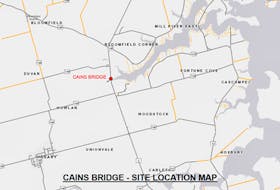Cumberland-Colchester MP Bill Casey is concerned news of the Atlantic Immigration Pilot Project isn’t spreading to some areas of the province, stunting uptake in rural regions.
After a meeting with federal immigration officials last week, Casey said he learned that the number of employers officially designated for the program in rural Nova Scotia is lower than in the Halifax region.
“I had a call from an employer last week that was looking for a permanent employee under an immigration program and they didn’t know about this program,” Casey said.
Following the meeting, Casey said he reached out to some employers in his riding who also weren’t aware of the program.
Casey also noted that, as reported by The Chronicle Herald earlier this month, New Brunswick seems to have a higher uptake for the Atlantic Immigration Pilot Project (AIPP) than Nova Scotia.
Casey said he sees huge potential in the program to fill labour needs and grow the population. He said the AIPP is the simplest way for employers to bring in skilled workers and the quickest way for immigrants to get permanent residency, but those benefits need to be better communicated.
“There’s enough of us between all of the MLAs and MPs and departments that we should be able to get the message out butobviously it hasn’t gotten out as well as it has
in some other provinces, and I just want to do my share to ensure that we alert employers about it,” Casey said.
“I believe there is a lot more potential than we have realized but it’s a matter of communication.”
The AIPP project was announced in July 2016 as part of the Atlantic Growth Strategy and officially launched in March. The program aimed to bring up to 2,000 additional primary immigrant applicants and their families in 2017, with the numbers to increase in subsequent years if the program performs well. Earlier this month, it was announced the program would continue and double to an allocation of 4,000 by 2020.
The program is unique in that it requires employers to engage with the community and settlement agencies to create a plan to help the employees settle in their new home. It also allows those coming to Canada under the program to apply for permanent residency right away, and bypasses some red tape employers must complete for other immigration streams.
Though it is a federal program, provinces handle the employer designation and immigrant endorsement process.
Uptake on the program has been slow, however, with only a fraction of the total allocation for 2017 being utilized.
Nova Scotia has an allocation of 792 of the 2,000 slots but as of last month has only issued 170 endorsements (compared to 338 in New Brunswick).
Speaking with The Chronicle Herald last month for a story on underutilization
of the AIPP in its first year, provincial immigration minister Lena Diab said she expects interest in the program to pick up in the coming months, and said her office has been working diligently to engage with employers.
Casey said he plans to keep in touch with his provincial and federal colleagues about how to spread the word, and to do his part to raise awareness about the program in his riding.









